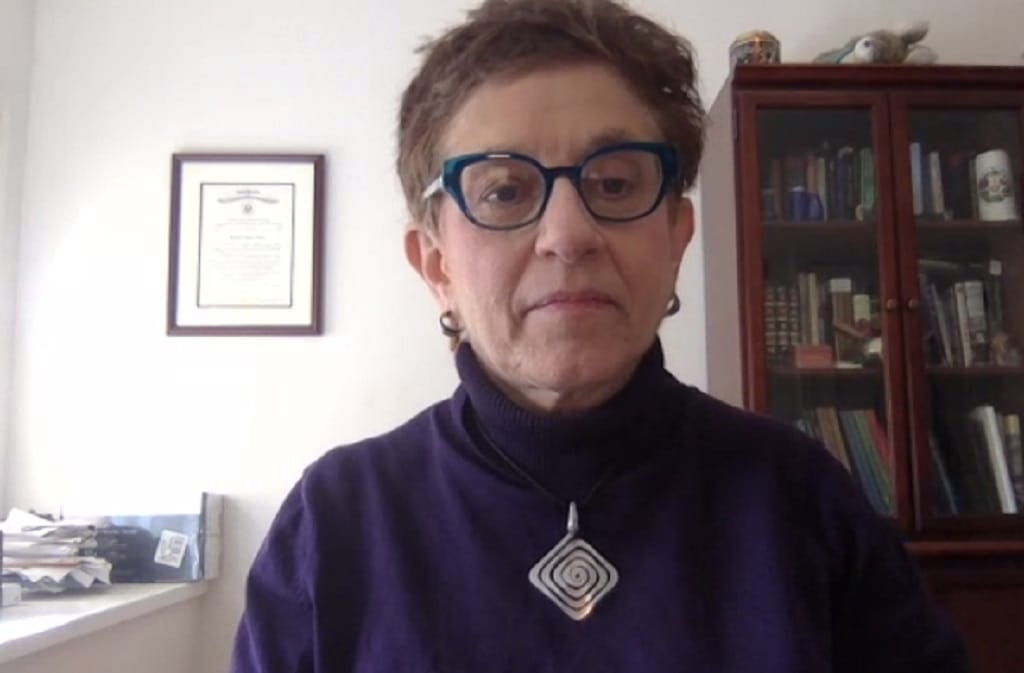Public Knowledge Celebrates 20 Years of Helping Congress Get a Clue on Digital Rights
February 27, 2021 – The non-profit advocacy group Public Knowledge celebrated its twentieth anniversary year in a Monday event revolving around the issues that the group has made its hallmark: Copyright, open standards and other digital rights issues. Group Founder Gigi Sohn, now a Benton Institute

February 27, 2021 – The non-profit advocacy group Public Knowledge celebrated its twentieth anniversary year in a Monday event revolving around the issues that the group has made its hallmark: Copyright, open standards and other digital rights issues.
Group Founder Gigi Sohn, now a Benton Institute for Broadband and Society senior fellow and public advocate, said that through her professional relationship with Laurie Racine, now president of Racine Strategy, that she became “appointed and anointed” to help start the interest group.
Together with David Bollier, who also had worked on public interest projects in broadcast media with Sohn, and is now director of Reinventing the Commons program at the Schumacher Center for a New Economics, the two cofounded a small and scrappy Public Knowledge that has become a non-profit powerhouse.
The secret sauce? Timing, which couldn’t have been better, said Sohn. Being given free office space at DuPont Circle at the New America Foundation by Steve Clemmons and the late Ted Halstead, then head of the foundation, was instrumental in Public Knowledge’s launch.
The cofounders met with major challenges, Sohn and others said. The nationwide tragedy of September 11, 2001, occurred weeks after its official founding. The group continued their advocacy of what was then more commonly known as “open source,” a related grandparent to the new “net neutrality” of today, she said.
In the aftermath of September 11, a bill by the late Sen. Ernest “Fritz” Hollings, D-S.C., demonstrated a bid by large copyright interest to force technology companies to effectively be the copyright police. Additional copyright maximalist measures we launched almost every month, she said.
Public Knowledge grew into something larger than was probably imagined by the three co-founders. Still, they shared setbacks and losses that accompanied their successes and wins.
“We would form alliances with anybody, which meant that sometimes we sided with internet service providers [on issues like copyright] and sometimes we were against them [on issues like telecom],” said Sohn. An ingredient in the interest group’s success was its desire to work with everyone.
Congress didn’t have a clue on digital rights
What drove the trio together was a shared view that “Congress had no vision for the future of the internet,” explained Sohn.
Much of our early work was spend explaining how digitation works to Congress, she said. The 2000s were a time of great activity and massive growth in the digital industry and lawmakers at the Hill were not acquainted well with screens, computers, and the internet. They took on the role of explaining to members of Congress what the interests of their constituents were when it came to digitization.
Public Knowledge helped popularize digital issues and by “walking [digital information] across the street to [Capitol Hill] at the time created an operational reality with digitization,” said Bollier.

Racine remarked about the influence Linux software maker Red Hat had during its 2002 initial public offering. She said the founders of Red Hat pushed open source beyond a business model and into a philosophy in ways that hadn’t been done before.
During the early days of Public Knowledge, all sorts of legacy tech was being rolled out. Apple’s iTunes, Windows XP, and the first Xbox launched. Nokia and Sony were the leaders in cellphones at the time, augmenting the rise of technology in the coming digital age.
Racine said consumers needed someone in Washington who could represent their interests amid the new software and hardware and embrace the idea of open source technologies for the future.
Also speaking at the event was Public Knowledge CEO Chris Lewis, who said Public Knowledge was at the forefront of new technology issues as it was already holding 3D printing symposiums before Congress, something totally unfamiliar at the time.








